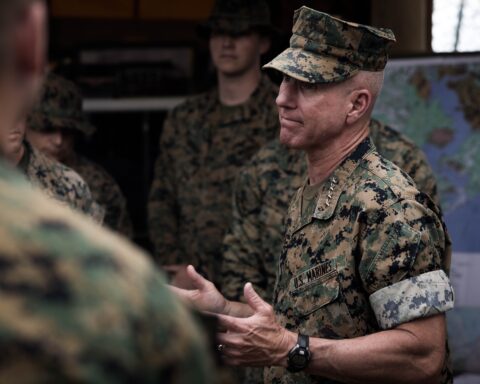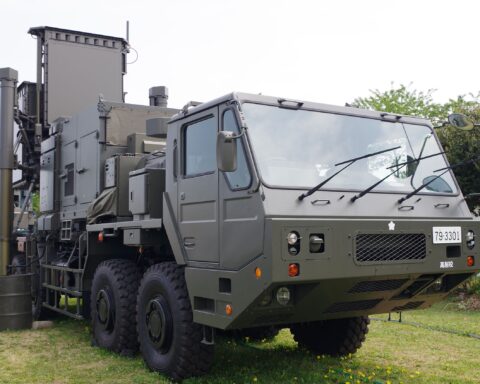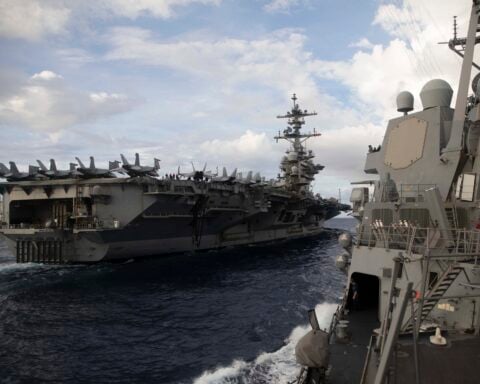The following is the July 1, 2024, Congressional Research Service In Focus report, China Primer: China’s Political System.
From the report
The People’s Republic of China (PRC or China) is the only Communist Party-led state either among the five permanent members of the United Nations Security Council or among the members of the G-20 grouping of major economies. As Congress has intensified its focus on China in the context of U.S.-China strategic competition, Members have increasingly sought to legislate and conduct oversight on matters that require an understanding of the PRC political system. Select features of that system are introduced below.
The Party-State
The PRC is both a nation state and a Leninist “party-state.” The Communist Party of China (CPC), also known as the Chinese Communist Party (CCP), is China’s dominant political institution. It operates a powerful and expansive bureaucracy and tasks itself with “exercis[ing] overall leadership over all areas of endeavor in every part of the country.” The Party tasks the government with administration. Interlocking Party and government hierarchies extend down to the level of small towns. At every level and in every institution, Party rank takes precedence over government rank.
Xi Jinping, 71, leads the PRC party-state. He has served since 2012 as CPC General Secretary and Chairman of the CPC Central Military Commission, which oversees the Party’s armed wing, the People’s Liberation Army (PLA). (The PLA formally and explicitly serves the Party, not the nation.) Xi also has served since 2013 as PRC President, a head-of-state position that officially has a minor role in the operations of the PRC government. Xi began his third five-year terms in his Party and state posts in 2022 and 2023.
The Communist Party of China

The CPC established the PRC on October 1, 1949. Today, the CPC’s 99 million members constitute nearly 7% of China’s population. All members completed an application and vetting process to join. The Party’s highest institution is the Central Committee, led by the General Secretary and including a 24-man Political Bureau (Politburo) and a 7-man Politburo Standing Committee. The latter is China’s top decisionmaking body.
The CPC requires the Central Committee to meet at least once annually, with meetings known as “plenary sessions” or “plenums.” Politburo Standing Committee members hold concurrent posts atop other parts of the political system, ensuring Party control of all political life in China.
- The Party’s no. 2 official, Li Qiang, currently serves concurrently as Premier of the State Council, the cabinet of the Central People’s Government, overseeing the government bureaucracy. The Party’s no. 6 official, Ding Xuexiang, serves as executive Vice Premier.
- The Party’s no. 3 official, Zhao Leji, currently heads the National People’s Congress (NPC), China’s unicameral legislature and, by protocol, China’s counterpart to the U.S. Congress. The NPC’s nearly 3,000 delegates represent 33 provincial-level jurisdictions, plus, purportedly, “Taiwan compatriots,” and the PLA. A third of delegates are sitting Party and government officials. The NPC’s powers include to enact and amend laws and approve the state budget and national plans for economic and social development.
- The Party’s no. 4 official, Wang Huning, heads the Chinese People’s Political Consultative Conference (CPPCC), a political advisory body that is central to the CPC’s claim to lead a system of “multiparty cooperation and political consultation.” The CPPCC also serves as a vehicle for the CPC’s efforts to win over every part of society to support the CPC’s goals, an exercise the CPC calls building a “patriotic united front.” Wang also oversees policy on Hong Kong, Macao, and Taiwan.
The CPC’s no. 5 official, Cai Qi, heads the Party Secretariat. It manages the CPC Central Committee bureaucracy, which includes six functional departments:
- The Organization Department is the Party’s personnel agency, responsible for recruiting and training personnel and assigning them to positions across the party-state.
- The Publicity Department (or Propaganda Department) is responsible for the Party’s messaging and for guiding the media and ideological work.
- The United Front Work Department (UFWD) seeks to win support for the CPC from non-CPC groups at home and abroad, including intellectual, ethnic and religious communities, private business, and populations in Hong Kong, Macao, Taiwan, and globally, with a focus on ethnic-Chinese diaspora communities.
- The Commission for Political and Legal Affairs is responsible for public security and “social stability.” It oversees the work of the Supreme People’s Court, the Supreme People’s Procuratorate, and the Ministries of Public Security, State Security, and Justice. The heads of all those institutions serve as commission members.
- The International Department (also known as the International Liaison Department) handles party-to-party relations. It takes the lead on diplomacy with Cuba, Laos, North Korea, and Vietnam.
- The Social Work Department, created in 2023, seeks to strengthen Party control over community governance, social work, volunteer work, industry federations, chambers of commerce, and the handling of complaints from the public.
Download the document here.





